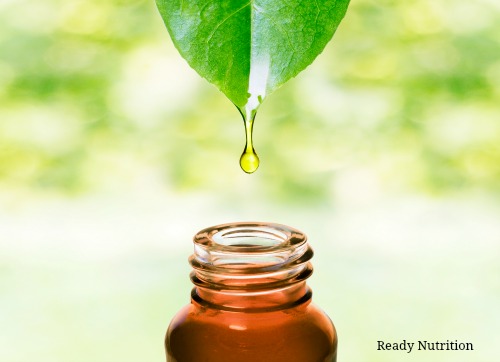
Most Common Ailments To Have Natural Medicine For
There are some common ailments and their causative organisms that I’m going to list.
- Enterococcus (Post-surgical infections, blood poisoning)
- Haemophilus influenzae (Otitis media, meningitis, sinus infections, pneumonia)
- Mycobacterium tuberculosis (Tuberculosis)
- Neisseria gonorrhoeae (Gonorrhea)
- Plasmodium falciparum (Malaria)
- Pseudomonas aeruginosa (Pneumonia, Bacteremia)
- Shigella dysenteriae (serious/extreme diarrhea)
- Staphylococcus aureus (Pneumonia, post-surgical infections, bacteremia)
- Streptococcus pneumoniae (meningitis, pneumonia)
- Escherichia coli /E. coli (foodborne illness, with/without bloody diarrhea)
- Salmonella spp. (severe food poisoning, extreme diarrhea)
The Three G’s
Guess what all of these guys have in common? They can all be treated with JJ’s #1 herb
- Garlic (Allium sativum): absolutely the best “broad spectrum” herb there is. Massive doses of it only lead to one immediate complication of severe flatulence. Another contraindication/caution is that garlic is a blood-thinner. It tends to interfere with those on platelet therapy and should be discontinued prior to a scheduled surgery. It is easy to obtain. For ear infections or external wounds you can make an infused oil for it.
How To Make Infused Garlic Oil:
– 5 cloves of garlic
– 4 ounces of olive oil
Chop up the garlic really fine, and place it in the oil…. shake it each day and let it sit in a cool dark place for two weeks…. much the same as a tincture. Then when needed, apply liberally.
Garlic is such a powerful herb that if you have nothing but garlic, you’re going to be doing pretty well. It can be found in the wild and easily cultivated. You’re going to hear flak from people about the allicin content being diminished after gathering/storage/drying, etc. Just do the best you can. In a long-term emergency scenario, your stored/tinctured/chopped garlic will have what you need to fight the illnesses. Along with what has been mentioned, it is antihypertensive, reduces plaque formation with atherosclerosis, lowers risks for cancer, reduces hypertension and lipids, and helps with unstable angina. Average daily dosage is 1 fresh garlic clove 1-2 times per day. Average daily dose is 4 grams or 8 mg essential oil. With commercial preparations such as capsules or tablets, consult with the packaging information as they’re produced at different strengths and concentrations.
- Ginger (Zingiber officinale): this is another highly-effective herb that is used with all manner of illnesses. Malaria, Shigella, Staphylococcus aureus, E. coli, strep, pneumonia, cancer fighting and Salmonella are just a few that ginger is effective against. A primary herb against cold and flu, one of the best reasons to have it around is that it’s very safe, especially with peds (kids). Teas, capsules, tinctures, and fresh (in your food) are some of the methods it can be employed with safety and effectiveness. Ginger is an antitussive that is almost as strong as codeine, and it clears mucus from the system as an expectorant. It is also an antihistamine. It’s great for upper respiratory infections. (Note: Garlic is good for lower respiratory tract infections….so the two go hand in hand.)
REMEMBER THIS! Ginger is also great for burn treatment: apply the juice for an instant pain reliever, to reduce blistering and inflammation, and to prevent subsequent infections of the burned area. You can make a tea and use this tea for burns, as well.
1 ounce/25 grams steeped for 5 minutes in 8 ounces of water. I mentioned this in the past, and I’ll mention it again: bring your water to a boil, and then take it off-boil for 1 minute prior to steeping your herb in it…the boiling point kills off the helpful components of almost any and all herbs. Dried root is 1 ½ ounces steeped for 10 minutes. You can also tincture it, or obtain commercially-prepared tinctures, as well as capsules containing dried root.
- Ginseng: In this case, the preferred is Siberian ginseng (Eleutherococcus senticosus), although Asian and American ginseng can be used, the latter actually growing in the wild in North America, making that a plus. The ginseng does the following: enhances the immune system (T-lymphocytes in particular), increases mental alertness, and (proven by hundreds of studies) increases the ability of people to hold up under stressful, severe conditions [nice to know for when the SHTF]. It enhances physical performance, and has been used by athletes with great success. It can be taken as a tea (3-6 ounces, or 85 to 170 grams) up to 3 times per day. It can also be found in tincture or capsule form; again, follow the instructions as per the manufacturer on commercially-prepared supplements. Cautions for those with high blood pressure, as ginseng tends to “get the blood moving.”
So, there they are: Garlic, ginger, and ginseng. These herbs are easy to obtain, easy to prepare, and easy to use. The trick is to do further research and really learn about them. In this manner, you have the knowledge to employ them more effectively, and you can use them to balance and complement one another. They are safe, reliable supplements that you can pack dried or (when safeguarded) prepare as either oils, teas, or tinctures. Test them out for yourselves to tailor-make your own supply to fit your needs. Have a great day, and enjoy the “Three G’s” in your preps! JJ out!
